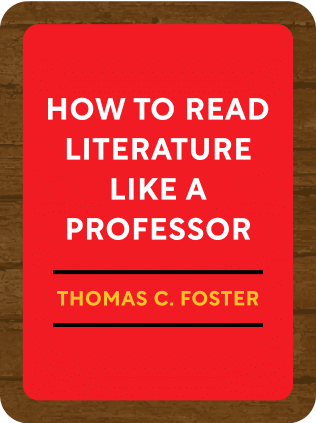

This article is an excerpt from the Shortform book guide to "How to Read Literature Like a Professor" by Thomas C. Foster. Shortform has the world's best summaries and analyses of books you should be reading.
Like this article? Sign up for a free trial here .
Why does irony change everything when it comes to literature? What are the different kinds of irony?
If there is a disconnect between your expectation of a story and the reality of how it plays out, it is most likely ironic. The three most common types of irony in literature are verbal irony, ironic mode, and dramatic irony.
Continue on to learn more about irony from How to Read Literature Like a Professor.
Irony Changes Everything
An intelligent reader will always be on the lookout for irony in literature—when an author plays against expectations. When irony is in play in a novel, every other chapter in How to Read Literature Like a Professor is irrelevant, because the author will invert the typical meanings of symbols and archetypes.
Some modern writers, like James Joyce and Angela Carter, deal almost exclusively with irony. So as you become more familiar with their work, you will be ready for them to go against your conventional expectations. But how can you spot irony in other works of literature?
How to Read Literature Like a Professor says that if there is a disconnect between your expectation of a story and the reality of how it plays out, it is most likely ironic. The conversation between the expectation and reality deepens the meaning of the work.
Think of irony like jazz music. Before a soloist takes off on a jazzy improvisation, he begins by playing the melody straight. That way, when he starts riffing on that melody, the audience can hear how his changes enhance and play against the basic melody. That kind of dual hearing is what irony does in literature. Our expectations are the melody, and the irony is the solo.
The Three Kinds of Irony
Some kinds of irony in literature:
- Verbal irony: When a character says something that means something else (sort of like sarcasm).
- Example: In Oscar Wilde’s The Importance of Being Earnest, a character observes that a widow’s hair is “quite gold from grief.” This is ironic because normally we would expect someone who is grieving to grow gray hair.
- Ironic mode: The characters have less free will or knowledge than the reader does. In most literary works, characters are equal to the audience in terms of autonomy and knowledge. But in ironic mode, characters struggle against conflicts that the reader could easily overcome.
- Structural or dramatic irony: The author goes against the reader’s expectations of the plot or the overall structure of a story.
- Example: In Samuel Beckett’s Waiting for Godot, two characters stand by the side of a road for the entire play. As we know, roads are normally associated with trips, and trips normally suggest a quest. But Beckett’s characters never go anywhere and the road never brings anything to them, either. Because Beckett knows the reader’s expectations of a road, he has the freedom to do the opposite and create irony.

———End of Preview———
Like what you just read? Read the rest of the world's best book summary and analysis of Thomas C. Foster's "How to Read Literature Like a Professor" at Shortform .
Here's what you'll find in our full How to Read Literature Like a Professor summary :
- How to get more out of the novels that you read
- Why you should focus on memory, symbols, and patterns to understand literature better
- Why sex scenes aren't always about sex






